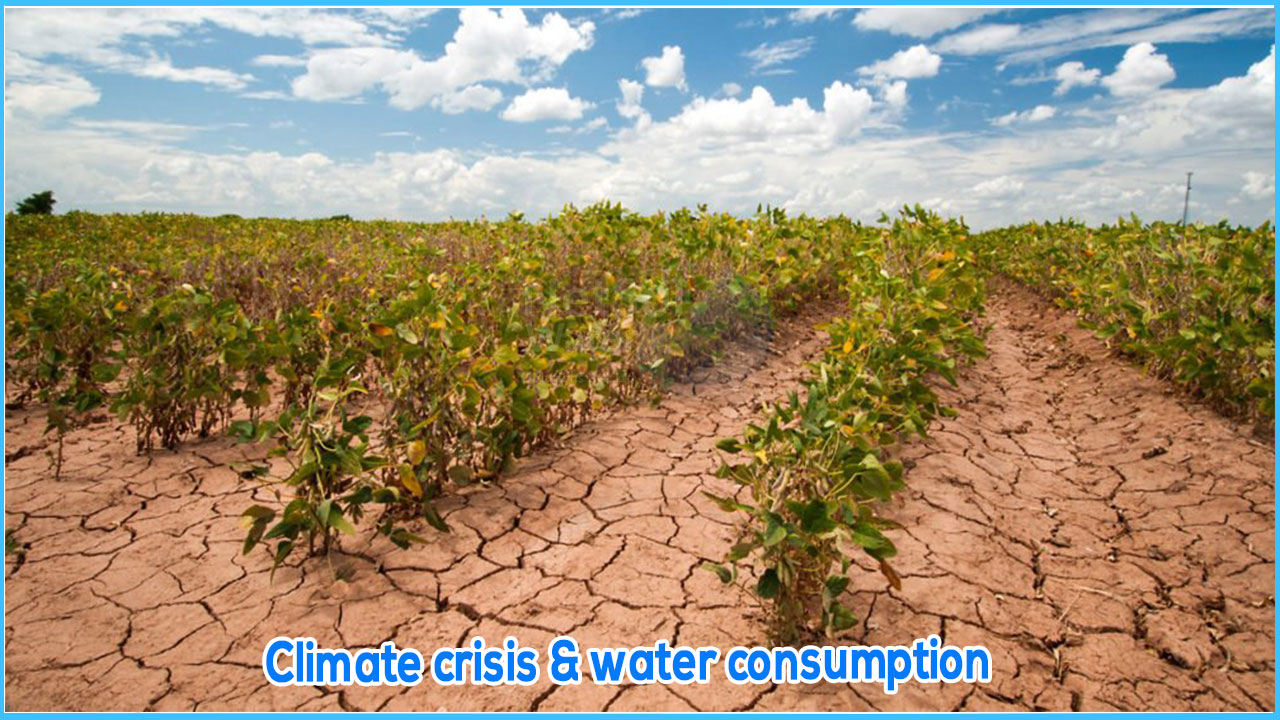IMPACT OF CLIMATE CRISIS ON AVAILABLE WATER
Climate change is affecting the amount of water accessible for human usage, making it more difficult and imbalanced to acquire this crucial resource. This is why water stress and climate change are inextricably linked. Extreme weather phenomena such as heat waves, heavy rain, thunderstorms, cyclones, typhoons, and hurricanes are becoming more common and severe, making society more vulnerable to water-related calamities.
 Water-related disasters accounted for almost 74% of all natural disasters, and floods and droughts have impacted more than 3 billion people over the last 20 years. Access to this treasure is becoming increasingly difficult as the effects of global warming grow. According to the Global Burden of Disease research, a shortage of safe drinking water caused 1.23 million people to die prematurely.
Water-related disasters accounted for almost 74% of all natural disasters, and floods and droughts have impacted more than 3 billion people over the last 20 years. Access to this treasure is becoming increasingly difficult as the effects of global warming grow. According to the Global Burden of Disease research, a shortage of safe drinking water caused 1.23 million people to die prematurely.
Water is the foundation of all life, and it is a major challenge to use it responsibly. The climate crisis is decreasing our accessible water supplies, but fortunately, new technologies are emerging that are assisting us in addressing this issue and putting water at the center of sustainable development.In every condition or climate crisis, water gets polluted but also it can be restored by using correct and advanced technologies which not only restore water for consumption but also provide clean water for the user so that no one will suffer due to climate crisis.
IS EVERYONE USING WATER SUSTAINABLY?
If less water is extracted than nature is capable of refilling, we can answer "yes" to this question. The goal is to keep water resources at sustainable levels, which is a key indicator of water scarcity. Water supplies begin to dwindle if countries utilize it far quicker than it is replenished. This is precisely the situation that is arising in several nations, where water stress and scarcity are becoming a reality as a result of rising population and, as a result, increased agricultural and industrial activities.
India, Saudi Arabia, Egypt, the United Arab Emirates, Syria, Pakistan, and Libya all have withdrawal rates considerably above 100%, indicating that they are withdrawing from the conflict.
WATER AS AN IMPORTANT RESOURCE
One of the most vital resources on the earth is water. In the current circumstances, it is critical to use water responsibly. To conserve the environment and move towards a sustainable development model, it is critical to keep seas and oceans healthy.Water is the wellspring of life, the substance that allows all living creatures, including humans, to survive and flourish. This is a simple argument, but given the rate at which the global population has expanded in recent decades, from 1.5 billion to more than 7.7 billion in less than a century, it should not be overlooked. Water has experienced the same thing.Fresh water withdrawals have increased six-fold since the turn of the century, raising the question of whether we are properly utilizing the water we have.
As a result, the adoption of innovative technology to secure water resources has increased. Water treatment plants have been built all over the world to ensure that no one suffers from disease or other problems as a result of water pollution, and NETSOL WATER is always on the lookout for this. They always steps forward to help users by meeting up their needs effectively and efficiently.




